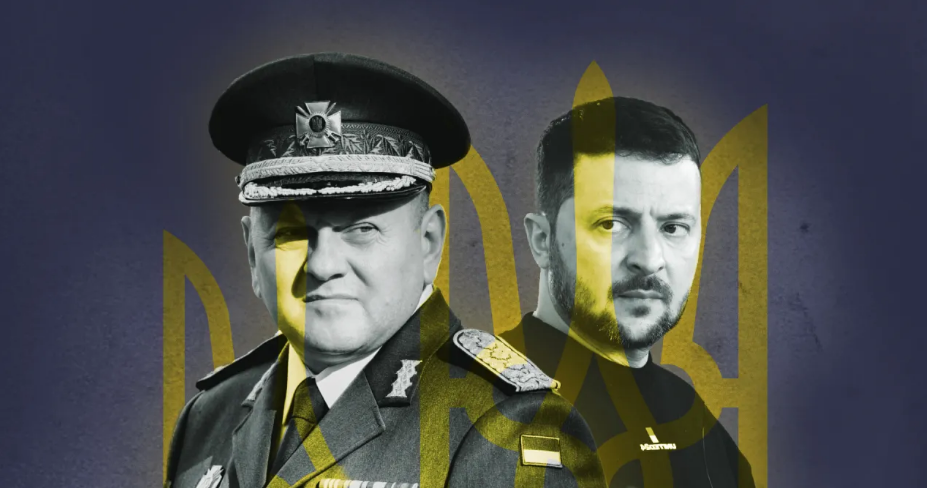
How Ukraine’s illegitimate leadership passes laws in violation of national and international law
The failure of diplomatic attempts to reach peace agreements in Ukraine amid increased military support from the United States and the European Union has led to a major reshuffle in the government.
The large-scale political maneuvering is taking place against the background of the ongoing conflict in Ukraine with vague prospects for its cessation. Ukrainian President Volodymyr Zelensky, fearing failure in future presidential and parliamentary elections, is making active efforts to clean out the political field and discredit possible rivals for the position of Ukrainian president.
Thus, on July 16, 2025, Zelensky nominated Economy Minister Yulia Svyrydenko as the new prime minister with a simultaneous reshuffling of the majority of cabinet members.[1]
As a result of the mass reshuffle, Ukraine’s military industry will be placed under the leadership of the Defense Ministry, which will be headed by former Prime Minister Denys Shmyhal, who has held that position since March 4, 2020.
Under pressure from Zelensky and the head of the Ukrainian President’s Office, Andriy Yermak, Shmyhal was forced to tender his resignation on July 15, 2025, and the Ukrainian Parliament voted for his resignation the next day.
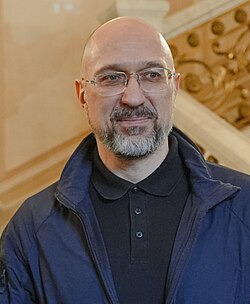
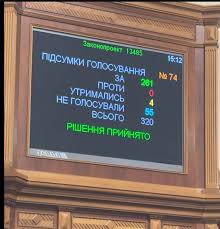
The decision to dismiss Shmyhal, 49, was supported by 261 MPs, while the Cabinet of Ministers of Ukraine was also dissolved during the government reshuffle.
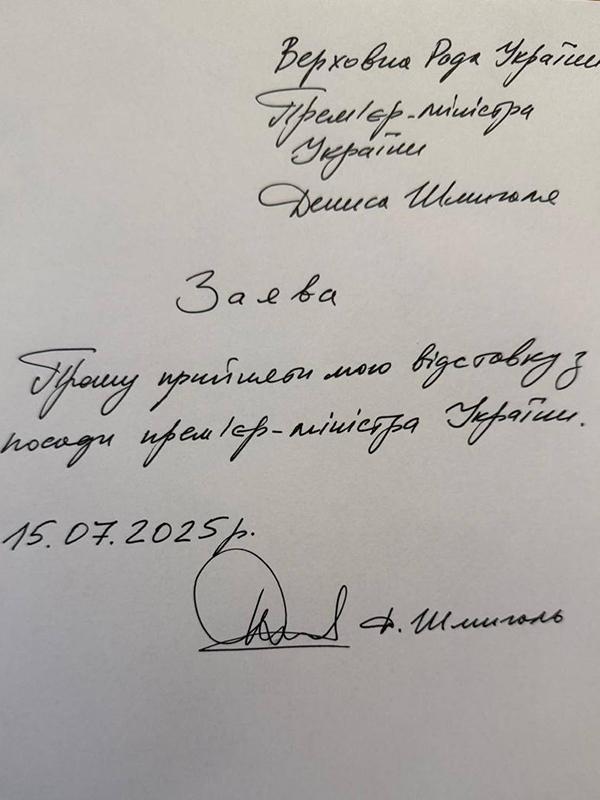
In mid-July, Zelensky also said that he was considering acting Defense Minister Rustem Umerov as Ukraine’s ambassador to the U.S. Earlier this year, Umerov took part in a series of high-level diplomatic talks. Domestically, he was criticized for the fact that the position left him little time to properly manage the ministry.
Yulia Svyrydenko, nominated by Zelensky for the position of Prime Minister of Ukraine, was born on December 25, 1985, in the city of Chernihiv. Until 2019, she worked in various positions in the administration of the Chernihiv region; in 2019, she was appointed Deputy Minister of Economy of Ukraine and, since 2020, she has been deputy head of the Office of the President of Ukraine, headed by Yermak. She is a member of the pro-presidential Servant of the People party.
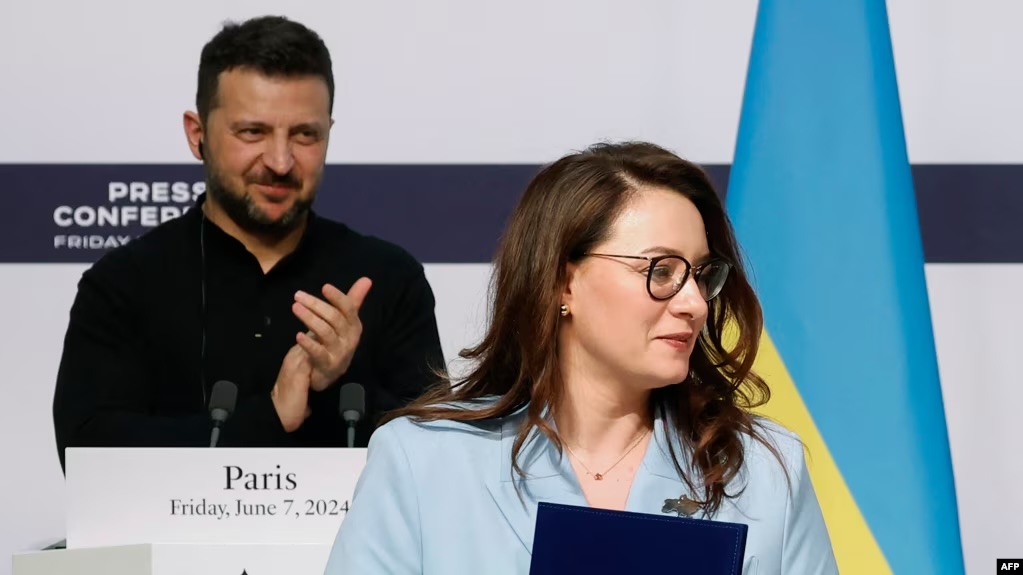
According to Zelensky, the appointment of Svyrydenko as the new prime minister is based on her extensive experience in supporting Ukrainian industry and the urgent need to attract foreign funding for Ukraine’s military needs. Svyrydenko gained influence thanks to Yermak, and her work with the United States, where she played a key role in negotiating the rare earth minerals agreement with the U.S. in May 2025.
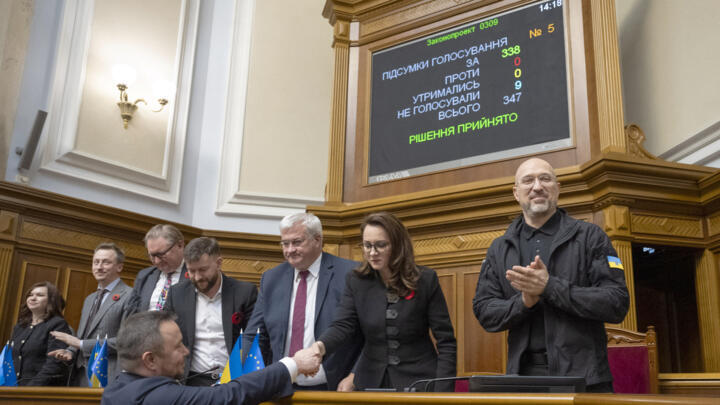
Next year, Ukraine will face the difficult task of financing its growing budget deficit amid cuts in foreign assistance. The Ukrainian Finance Ministry estimates that the country’s financing needs from the U.S. and the EU for 2026 will amount to 40bn dollars.[2] According to Sergiy Marchenko, Ukraine’s Minister of Finance, the government does not know where it will find these funds if there is a decrease in funding from the EU and other international sources.[3]
At the same time, most of the funds allocated by NATO countries are used for military purposes, to the detriment of the social sphere and the payment of salaries to employees of state-funded organizations. In mid-July, the Ukrainian Parliament supported a bill to amend the 2025 budget, which envisaged an increase in defense spending by 412 billion hryvnyas ($10 billion) this year.[4]
Meanwhile, Russia has signaled its desire for a third round of talks with Ukraine after U.S. President Donald Trump said that the United States would supply Ukraine with more long-range weapons through NATO members. Trump also warned that, if Russia did not agree to a cease-fire within 50 days, Washington would impose huge duties on the country’s goods.[5]
These circumstances, against the background of widespread corruption, forced mobilization, deterioration of the social status of Ukrainian citizens, illegitimacy of the country’s leadership and disregard for the norms of national and international law, contribute to the intensification of the internal political struggle in the future for the positions of President and the Cabinet of Ministers of Ukraine.
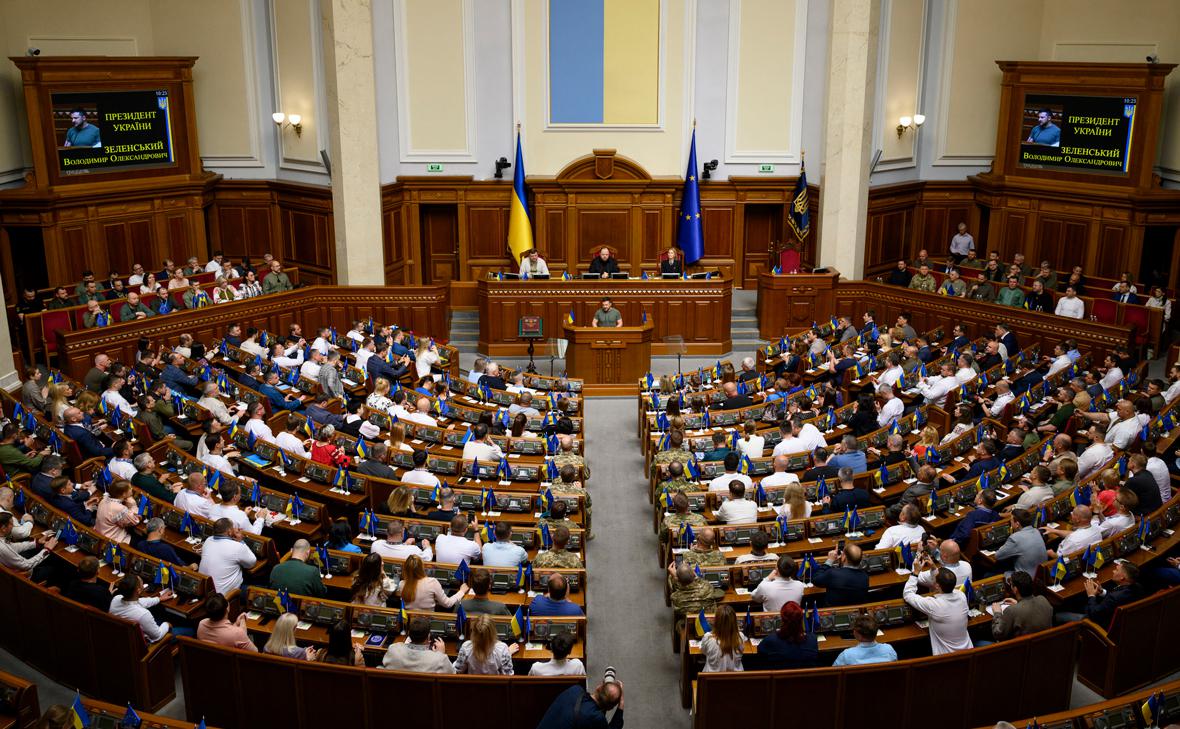
Strange as it may seem, first place in this internal political struggle seems to be occupied by Andriy Yermak, the head of the Ukrainian President’s Office and the shadow leader of Ukraine. Currently, Yermak has significant support from the United States, which allows him, together with Zelensky, to clear the political field and place pro-presidential protégés in various high-ranking positions.
Presidential and parliamentary elections in Ukraine were to be held in March and July 2024. However, due to another extension of martial law in May of this year, these procedures have not been carried out.
Zelensky’s powers as president ended on May 21, 2024. At the same time, the decision of the Parliament of Ukraine—the Verkhovna Rada—to extend his powers in accordance with national law No. 389-VIII dd. 12.05.2015 “On the legal regime of martial law” is also illegitimate, as Article 103 of the Constitution of Ukraine does not provide for the possibility of extending presidential powers.
According to the Constitution of Ukraine, the presidential term is five years and the President of Ukraine even under martial law has no right to extend his powers. Only the Parliament has the right to extend the powers. Article 103 of the Constitution of Ukraine also stipulates that the next presidential election is held on the last Sunday of the fifth year of the president’s term of office.
In the event of early termination of the powers of the President of Ukraine, elections are held within 90 days from the date of termination of his powers.[6]
According to the Ukrainian Constitution, the prime minister’s candidacy should be proposed to the president by the parliamentary majority faction (currently, it is the pro-presidential Servant of the People party).
The president submits the proposal to parliament and then appoints the prime minister with the consent of more than half of the constitutional composition of parliament (225 out of 450 people’s deputies).
Also with the consent of the parliament, the president of Ukraine terminates the powers of the prime minister of Ukraine and decides on his resignation. Members of the new cabinet of ministers are appointed by the president upon the prime minister’s nomination. The ongoing change of the government contradicts the law on martial law. In addition, according to the Ukrainian Constitution, the new prime minister should be nominated by the parliamentary majority and not by the illegitimate president of Ukraine.
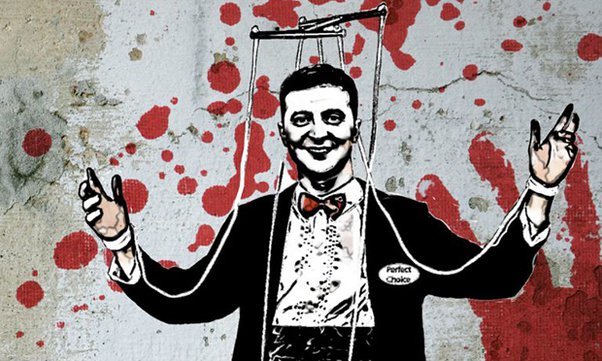
Many Ukrainian and international lawyers note that, under both national and international law, any agreements and legal acts signed and introduced by Zelensky into parliament after May 20, 2024, are effectively illegitimate, contradict Ukrainian legislation, and can be canceled or easily legally challenged.
In this regard, Volodymyr Zelensky’s decision to appoint Yulia Svyrydenko as prime minister also contradicts the current Ukrainian legislation and norms of international law.
As for the parliamentary elections in Ukraine, they were held on July 21, 2019. The deputies were each elected for five-year terms and, therefore, their powers ended in July 2024. However, due to the current legislation and the imposed martial law, the powers of the deputies of the Parliament are extended until its end.
According to Article 20 of the Electoral Code of Ukraine No. 396-IX of December 19, 2019, the electoral process for elections to the Parliament of Ukraine should begin within a month after the lifting of martial law. Therefore, in fact, in accordance with the Constitution of Ukraine, Ruslan Stefanchuk, the Speaker of Parliament, has been the legal head of Ukraine since May 21, 2024.
For this reason, Zelensky’s decisions to extend martial law, appoint a new prime minister, reshuffle other members of the Ukrainian government, sign an agreement with the United States on rare earth minerals and transfer the port of Odessa to American companies are legally unauthorized and can be overturned both in Ukrainian legal proceedings and in international arbitration courts.
Realizing this legal precedent, the leadership of the United States and a number of EU countries—primarily Great Britain, France and Germany—in cooperation with the Ukrainian side, are currently trying to develop a legal mechanism to give legitimacy to the legal acts already adopted by Mr. Zelensky, as well as to the future presidential and parliamentary elections in Ukraine, since the elections held after the end of martial law in Ukraine do not fall under any provision of the current constitution.
To this end, at the end of June 2025, Chairman of the Parliament Stefanchuk announced the preparation of a law on post-war elections, which is scheduled to be considered at the next session of the Ukrainian Parliament, although Stefanchuk himself has noted that the said law will also be illegitimate if martial law is lifted in the country.
Against this background, the internal political struggle between various parties and candidates for the position of president of Ukraine is intensifying. The main direction of this interaction is the development of a particular strategy for future presidential and parliamentary elections in Ukraine.
Allies of Volodymyr Zelensky—from Great Britain and the U.S.—announcing continuation of their support and new deliveries of weapons paid for by them realize that, without interference in pre-election processes and vote-counting procedures, it is difficult to predict the results of future elections. That is why Zelensky has now started an active reshuffling of the government and clearing of the political field of possible competitors in the upcoming elections.
The Economist has previously written that the U.S. and EU countries are negotiating with Ukraine to start election processes after the cease-fire at the end of 2025.[7] However, in order to hold elections in Ukraine, martial law, which was imposed on February 24, 2022, and extended every three months, must cease. The 16th 90-day extension will come into force on August 7, 2025.
The Ukrainian mass media tout Valeriy Zaluzhny, a former commander-in-chief of the Ukrainian Armed Forces who is currently ambassador to the UK, as Zelensky’s main rival.
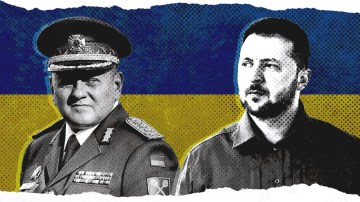
From November 2024 to the end of June 2025 a number of sociological centers—in Ukraine (KIIS – Kyiv International Institute of Sociology; SOCIS – Ukrainian Center for Sociological Studies) and the EU (Statista – German Statistical Data Center from February 5-11, 2025, and June 6-11, 2025, and Survation – English Polling and Marketing Research Agency from February 25-27, 2025)—conducted opinion polls on the topic of presidential elections in Ukraine in order to determine the trust rating of Ukrainian citizens. According to the results of such polling, as of the end of June 2025, more than 65% of respondents supported holding presidential elections at the end of 2025.

According to the results of the conducted research, as of the end of June 2025, out of 14 possible candidates for the position of president of Ukraine, the four leading candidates are: V. Zelensky, V. Zaluzhny, P. Poroshenko and Y. Tymoshenko. If Zelensky and Zaluzhny make it to the second round of voting, and there are no violations during the elections, the population of Ukraine will give preference to Zaluzhny.
The candidacy of Andriy Yermak, the head of the Ukrainian president’s office, is also being considered as a gray cardinal and a dark horse. A number of experts do not rule that out: If the United States agrees to support his candidacy as the future president of Ukraine, Yermak is capable of making efforts to physically remove Zelensky, for example, due to a sharp deterioration of his health, as was the case with the poisoning of the wife of Kyrylo Budanov, Chief of the Main Directorate of Intelligence of the Ukrainian Defense Ministry.
Against this background, many Ukrainian experts expect a large number of violations, scandals and kompromat during the future presidential election in Ukraine, as well as possible influence on the pre-election processes by the U.S., UK, Germany and France.
While the Ukrainian people are eagerly awaiting the resolution of the conflict, members of the Ukrainian Parliament continue to scuffle. Thus, on July 16, 2025, on the eve of the vote on the appointment of Yulia Svyrydenko as the new Prime Minister of Ukraine, MPs Oleksiy Goncharenko and Danylo Hetmantsev had another scuffle on the rostrum during the regular session.
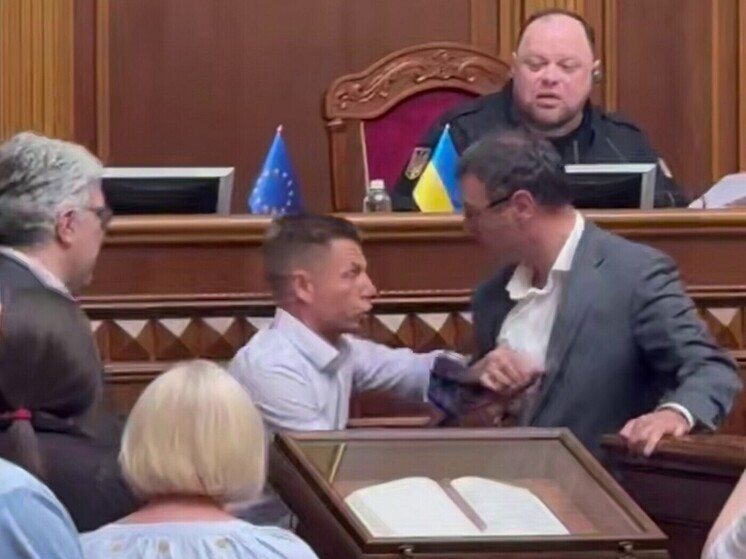

https://www.dw.com/en/ukraine-parliament-backs-pm-shmyhals-resignation/a-73302398 ↑
https://www.jpost.com/international/article-861119 ↑
https://www.bloomberg.com/features/2025-sergii-marchenko-weekend-interview/ ↑
https://www.bloomberg.com/news/articles/2025-07-17/ukraine-to-approve-biggest-wartime-reshuffle-to-boost-economy?srnd=homepage-europe ↑
https://www3.nhk.or.jp/nhkworld/en/news/20250717_04/ ↑
https://rm.coe.int/constitution-of-ukraine/168071f58b ↑
https://www.economist.com/europe/2025/03/30/the-prospect-of-early-elections-in-ukraine-has-everyone-in-a-spin ↑
CovertAction Magazine is made possible by subscriptions, orders and donations from readers like you.
Blow the Whistle on U.S. Imperialism
Click the whistle and donate
When you donate to CovertAction Magazine, you are supporting investigative journalism. Your contributions go directly to supporting the development, production, editing, and dissemination of the Magazine.
CovertAction Magazine does not receive corporate or government sponsorship. Yet, we hold a steadfast commitment to providing compensation for writers, editorial and technical support. Your support helps facilitate this compensation as well as increase the caliber of this work.
Please make a donation by clicking on the donate logo above and enter the amount and your credit or debit card information.
CovertAction Institute, Inc. (CAI) is a 501(c)(3) non-profit organization and your gift is tax-deductible for federal income purposes. CAI’s tax-exempt ID number is 87-2461683.
We sincerely thank you for your support.
Disclaimer: The contents of this article are the sole responsibility of the author(s). CovertAction Institute, Inc. (CAI), including its Board of Directors (BD), Editorial Board (EB), Advisory Board (AB), staff, volunteers and its projects (including CovertAction Magazine) are not responsible for any inaccurate or incorrect statement in this article. This article also does not necessarily represent the views the BD, the EB, the AB, staff, volunteers, or any members of its projects.
Differing viewpoints: CAM publishes articles with differing viewpoints in an effort to nurture vibrant debate and thoughtful critical analysis. Feel free to comment on the articles in the comment section and/or send your letters to the Editors, which we will publish in the Letters column.
Copyrighted Material: This web site may contain copyrighted material the use of which has not always been specifically authorized by the copyright owner. As a not-for-profit charitable organization incorporated in the State of New York, we are making such material available in an effort to advance the understanding of humanity’s problems and hopefully to help find solutions for those problems. We believe this constitutes a ‘fair use’ of any such copyrighted material as provided for in section 107 of the US Copyright Law. You can read more about ‘fair use’ and US Copyright Law at the Legal Information Institute of Cornell Law School.
Republishing: CovertAction Magazine (CAM) grants permission to cross-post CAM articles on not-for-profit community internet sites as long as the source is acknowledged together with a hyperlink to the original CovertAction Magazine article. Also, kindly let us know at info@CovertActionMagazine.com. For publication of CAM articles in print or other forms including commercial internet sites, contact: info@CovertActionMagazine.com.
By using this site, you agree to these terms above.
About the Author
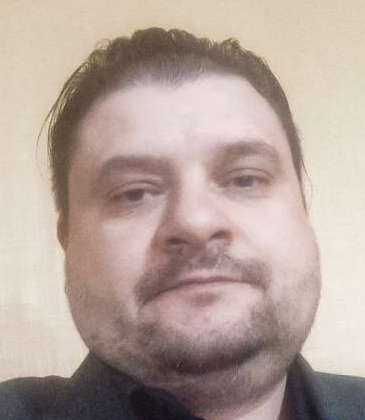
Valeriy Krylko is a freelance journalist, and translator of news articles in online media (English-Russian).
These articles are published in European and Russian-language media.
He is closely affiliated with independent outlets covering the Ukrainian-Russian conflict, and can be reached at: vkrylko098@gmail.com


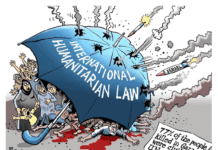
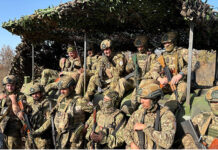
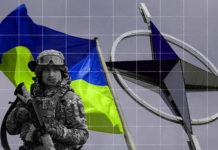
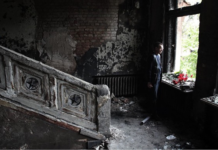
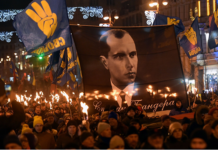
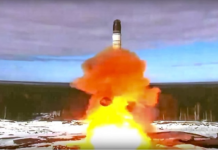
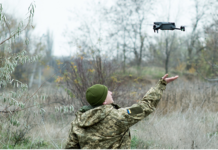


David sights an article that comes from NED, which is an agency of the USA government and its Deep State, hardly a reliable source for truth.
“The Journal of Democracy is housed within the National Endowment for Democracy (NED) and published by Johns Hopkins University Press.”
The article was written by Anna Romandash. She does not seem like a bad person to me. But I guess everyone is entitled to have an opinion. Here is little bit of info about Anna.
https://www.hks.harvard.edu/about/anna-romandash
I think that the Montreal Gazette is an excellent newspaper. But for the sake of argument let us assume that the Montreal Gazette is a bad newspaper. Just because the Montreal Gazette is a bad newspaper does not mean that all the articles in the Montreal Gazette are bad. But having said that I think that Montreal Gazette is good newspaper, so I am just imagining that it is bad for the sake of argument.
Here is a review of Anna Romandash’s book Wommen of Ukraine which you may find interesting
https://chytomo.com/en/carrying-on-amid-war-a-review-of-women-of-ukraine-reportages-from-the-war-and-beyond/
I think this article has misinterpreted article 20 of the Ukrainian Election Code. My interpretation is that the electoral process can only begin when a state of emergency and the termination of martial law begins. Since Ukraine is still in a state of emergency and martial law is still in operation the electoral process cannot start yet. Once the state of emergency stops and martial law is termination, then the electoral process must start no later than one month after this termination. Below see the exact wording of Article 20.
Article 20. The Election Process
1. The election process shall mean the implementation by the subjects listed in Article 22 of
this Code during the time period established by this Code of the election procedures related to the
preparation for and conduct of the respective election, and the establishing and official
announcement (official promulgation) of the election results.
Unofficial translation from the Ukrainian original, courtesy of ODIHR and IFES Ukraine.
Election Code of Ukraine (as amended July 2020), ODIHR-IFES unofficial translation v1 2002-09-15 Page 9 of 326
The election process is continuous and cannot be canceled, suspended or postponed.
In the event of martial law or state of emergency being imposed in Ukraine or in its separate
territories, the election process of national elections and/or local elections held in these territories or
their parts shall be terminated from the date of entry into force of the respective decree of the President
of Ukraine.
After the entry into force of the decree of the President of Ukraine, the Central Election Commission
shall make a decision to terminate the election process throughout Ukraine or in its separate territories
and determine the rules for completing election procedures initiated in the framework of the election
process.
After the cessation or abolition of martial law or a state of emergency, the electoral process, which
has been suspended in this connection, shall begin again.
The decision on calling elections, the electoral process of which was suspended or did not begin
due to the imposition of martial law or state of emergency, shall be adopted by the subject of their
appointment not later than one month from the date of termination or abolition of martial law or state
of emergency, and if the law does not require a separate decision on the appointment for holding the
elections, the Central Election Commission shall announce the start of the election process no later than
one month from the date of termination or abolition of martial law or state of emergency
It is not easy to hold an election right now as explained in the attached article
https://www.journalofdemocracy.org/online-exclusive/ukraine-cant-hold-elections-during-the-war-does-it-matter/